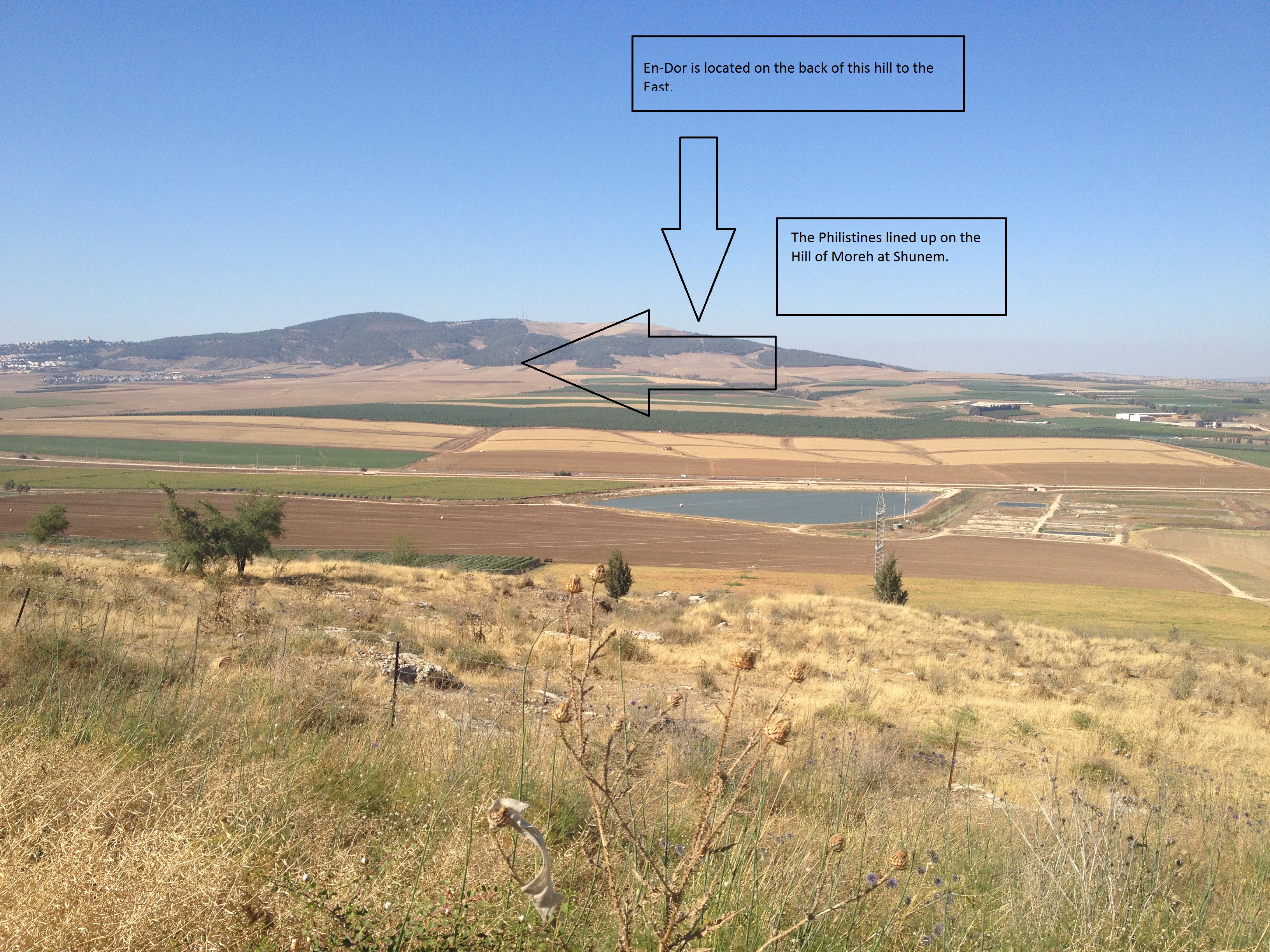A War, a Witch, and a Weak King
One of the most undervalued aspects of biblical narrative is geography. Just like any story, biblical narratives involve an important geographical component that either overtly or subtly gives additional insight into what is happening. Whenever I’m in Israel, I am reminded that geography can often reveal aspects of a story in a way nothing else can.
One of my favorite illustrations of this is the story of Saul’s last stand against the Philistines. This story is found in 1 Samuel 28, and through the careful narration and attention to geographical detail, we are given special insight into the character of Saul.
The story starts by describing a time when the Philistines had gathered to fight against Israel. At the time, David was living with the Philistines, and originally was instructed to go to war against Israel (1 Sam 28:2). However, due to the providence of God, David was forbidden by the Philistine warlords from participating in the battle (1 Sam 29:4). God also allowed the Amalekites to kidnap the families of David and his men, thus ensuring that they would be occupied and unable to help Saul or the Philistines (1 Sam 30). Thus, Saul had no help and the only place he could turn to for help was the Lord.
Except Saul was living in perpetual disobedience to Yahweh by attempting to kill David and solidify his own dynasty. So, although Saul initially tried to consult the Lord, he did so on his terms without repentance. So, Yahweh did not answer him (1 Sam 28:6). Thus, rather than seek the Lord with true repentance, Saul sought help his own way.
Because of war with the Philistines, Saul had brought Israel to camp at Mount Gilboa opposite the Philistines, who were encamped at Shunem on Mount Moreh (1 Sam 28:4). These locations are quite near one another (see photo below). Battle was imminent and Saul was afraid.

Rather than turn to the Lord in repentance, which should have been the obvious solution, Saul asked his men to search out a medium, even though he was supposed to have banished them out of Israel (1 Sam 28:7; cf. 1 Sam 28:3 and Lev 19:31; 20:27). Saul was clearly violating God’s rules for Israelite conduct. Yet, he was intent on doing everything humanly possible to prepare himself for the battle against the Philistines, and avoid reliance on the Lord in the process.
In fact, Saul is so bent on trying to get spiritual help through his own means, that when he hears that a medium is in En-dor, he goes to visit her. The reason we should find this so shocking (apart from the fact that there is supposed to be no medium in Israel) is because En-dor is located on the backside of the hill of Moreh! In other words, Saul would have to go behind enemy lines, through the territory occupied by the enemy, to get help from this woman who Saul was supposed to have removed from Israel. This would have been dangerous and challenging, yet Saul considered the risk worth it. All because he would rather do that than confess his sins and rely on Yahweh.

The narrator is careful to demonstrate that Saul’s character is one of self-preservation and self-reliance. Throughout the book of 1 Samuel, Saul has consistently done things without the Lord’s approval or against the Lord’s command. He is a self-made man who relies on his own devices to accomplish his plans.
From a big-picture perspective, one of the main reasons that Saul exists as king is to present a foil to the future kingly reign of David, a man after God’s own heart. Although Saul was self-willed and a do-it-yourself kind of man, David was one who waited upon the Lord and relied on God to be the source of his strength.
Seeing the layout of the valley of Jezreel shows just how tenacious Saul really was. He was willing to put his life on the line in order to attain help—just not the right kind of help. However, the next king, David, would be the one who showed dependence on God.
Certainly, this principle is valid for our own lives. Scripture is clear that those who depend on God will be blessed and those who do not depend on God will suffer.